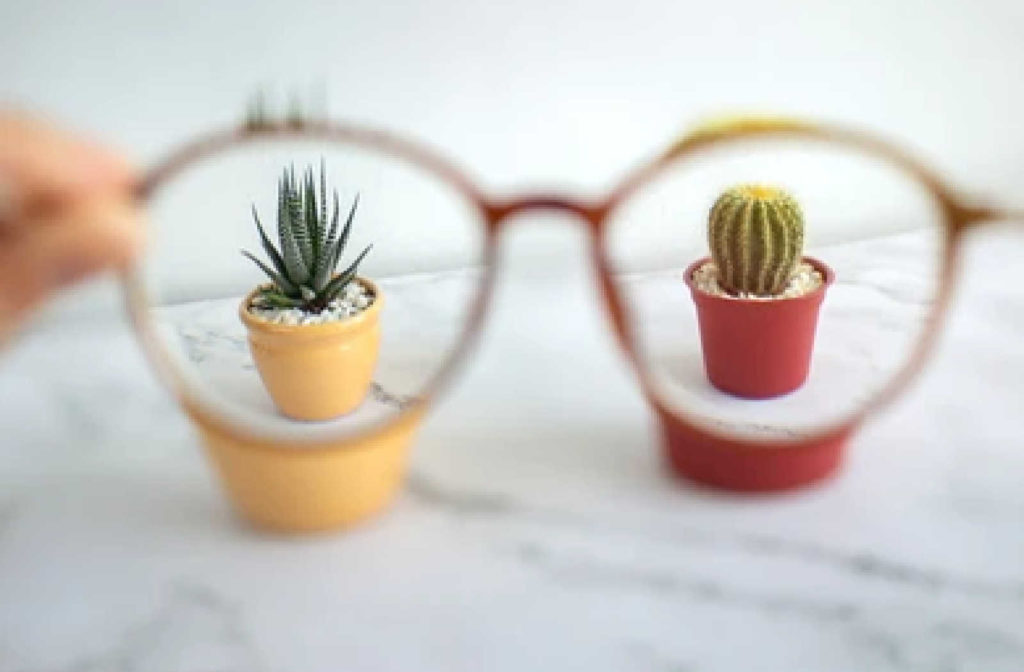The prevalence of myopia, also known as nearsightedness, is increasing in the United States, as well as across the world. In the US alone, one in four (25% of) parents has a child that has been diagnosed with myopia.
While it is a common eye problem experienced by children, many of them may not even be aware they are experiencing eye issues. How do you then know if your child has myopia? The answer is children’s eye exams. Eye exams can detect and confirm a myopia diagnosis.
Myopia tends to worsen as children grow, but other factors can cause myopia to worsen. We look at symptoms, treatment options, and factors that can worsen this eye condition in more detail below.
What Is Myopia?
Myopia is a refractive error that results when the eyeball is longer than it should be or the cornea is too curved. Light entering the eye doesn’t focus on the retina, and this causes blurry distant vision.
Eyes continue to grow during infancy and childhood and reach adult size around age 20. For this reason, many school-aged children develop myopia.
Symptoms of Myopia
Symptoms of nearsightedness in children can include the following:
- Eye pain
- Frequent headaches
- Eye rubbing
- Sensitivity to light
- Unable to see the whiteboard at school unless sitting in front of the classroom
- Sitting too close to the TV
- Persistent squinting
- Holding objects or books close to see properly
- Short attention span
Causes of Myopia Progression
There is a genetic component to myopia. If one or both parents have myopia, you are at increased risk for developing the condition. However, apart from genetics, other environmental factors can increase your risk of myopia or cause myopia to worsen:
Lack of Time Spent Outdoors
Outdoor play with exposure to natural light shows a significant decrease in myopic shift and axial elongation. Spending time outdoors helps the eyes focus on objects at a distance giving the eye muscles a chance to relax from constant near focus.
The suggestion is that the retina releases dopamine in response to bright sunlight. The increased dopamine inhibits axial elongation of the eyeball.
Near Vision Activities
Near vision tasks and activities include anything that requires a close focus. Reading, writing, using a phone, or working on a computer can cause myopia progression.
More Screen Time
Studies have found an association between increased screen time and myopia. Prolonged screen time from digital devices such as computers, tablets, and phones increases the risk of developing myopia and can lead to myopia progression by putting stress on focusing skills.

Treatment Of Myopia
Treatment and management of myopia in children can include the following options:
Atropine Drops
Low-dose atropine eye drops can slow myopia progression. Most practitioners will use Atropine eye drops in combination with other treatments.
Ortho-K
Orthokeratology involves wearing rigid gas-permeable contact lenses overnight to provide better vision during the day. The lenses gradually and painlessly reshape the eyes and slow the progression of myopia.
These lenses are an excellent option for patients not wanting to wear contact lenses throughout the day. They are also excellent for active children and swimmers.
Multifocal Contacts
Multifocal contact lenses allow young children to see comfortably at varying distances. These soft contact lenses cue the eyes to stop elongating by helping peripheral light focus in front of the retina.
Managing myopia with regular monitoring can help prevent high myopia and other complications. Without treatment, myopia can increase your risk of developing vision-threatening eye conditions such as retinal detachment, glaucoma, cataracts, and myopic maculopathy.
Preventing Myopia From Worsening
While factors such as a family history of myopia or age are out of our control, there are some things we can control. Here are a few ways to effectively prevent myopia from worsening:
- Encourage outdoor play as much as possible, at least 1 hour per day.
- Avoid screens for children 4 years and younger.
- Limit screen time in young children to 1 hour for ages 4 to 6 and 2 hours for ages 7 and older.
- Encourage children to take breaks between screen time and when doing near-focused activities.
- It’s critical to have your child’s eyes checked every 6 months if they have myopia. This ensures that their eyes have not elongated and their myopia remains stable.
Visit Us For Help in Stopping Myopia Progression
Routine eye exams are the first line of defense that help detect, treat, and manage eye conditions such as myopia before it progresses. If you suspect your child has an eye issue or notice the tell-tale signs of myopia, book an appointment with Signature Eye Care today.



